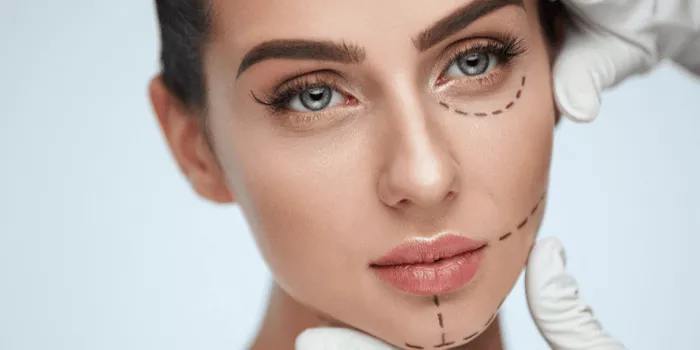Puffy eyes are a common problem that many people experience, especially in the morning. They can make you look tired and older than you actually are. Fortunately, there are several things you can do to reduce the appearance of puffy eyes and make you look refreshed and alert. In this article, we will explore the causes of puffy eyes, as well as some effective remedies to help reduce the puffiness.
Causes of Puffy Eyes:
Puffy eyes can be caused by a variety of factors, including:
Lack of Sleep:
One of the most common causes of puffy eyes is lack of sleep. When you don’t get enough sleep, your body produces more cortisol, a stress hormone that can cause inflammation and fluid retention in the body, including around the eyes.
Allergies:
Allergies can also cause puffy eyes. When you have an allergic reaction, your body releases histamines, which can cause inflammation and fluid retention.
Dehydration:
Dehydration can cause the body to retain water, leading to puffiness in the eyes.
Aging:
As we age, the skin around the eyes becomes thinner and loses elasticity, making it more prone to puffiness.
Genetics:
Some people are simply more prone to puffy eyes due to genetics.
Remedies for Puffy Eyes:
Cold Compress:
A cold compress can help reduce puffiness and inflammation around the eyes. Simply wrap a few ice cubes in a towel and hold it against your eyes for a few minutes. The cold temperature can help constrict blood vessels and reduce swelling.
Cucumber Slices:
Cucumber slices are a classic remedy for puffy eyes. The cool temperature and anti-inflammatory properties of cucumbers can help reduce swelling and puffiness. Simply slice a cucumber and place the slices over your eyes for 10-15 minutes.
Tea Bags:
Tea bags can also help reduce puffiness around the eyes. The caffeine and tannins in tea can help constrict blood vessels and reduce inflammation. Simply steep two tea bags in hot water, let them cool, and place one over each eye for a few minutes.
Hydration:
Drinking plenty of water can help reduce puffiness by flushing out excess salt and toxins from the body. Aim to drink at least 8 glasses of water a day.
Sleep:
Getting enough sleep is crucial for reducing puffiness around the eyes. Aim for 7-8 hours of sleep per night. If you have trouble sleeping, try establishing a bedtime routine and avoiding electronics before bedtime.
Eye Creams:
There are several eye creams on the market that can help reduce puffiness and dark circles around the eyes. Look for creams that contain caffeine, vitamin K, or retinol. These ingredients can help improve circulation and reduce inflammation.
Massage:
Gently massaging the area around the eyes can help stimulate lymphatic drainage and reduce puffiness. Use your ring finger to gently massage the area in a circular motion. Be careful not to tug or pull on the delicate skin around the eyes.
Elevate Your Head:
Sleeping with your head elevated can help prevent fluid from accumulating around the eyes while you sleep. Use an extra pillow or adjust the angle of your bed to achieve a slight incline.
Avoid Salt:
Eating too much salt can cause the body to retain water, leading to puffiness around the eyes. Avoid processed foods and try to limit your salt intake. Instead, opt for fresh fruits and vegetables, which are high in water content and can help hydrate the body.
Exercise:
Regular exercise can help improve circulation and reduce fluid retention, which can help reduce puffiness around the eyes. Aim for at least 30 minutes of moderate exercise a day, such as brisk walking, cycling, or swimming.
Aloe Vera:
Aloe vera is a natural anti-inflammatory that can help reduce puffiness around the eyes. Apply a small amount of aloe vera gel to the affected area and leave it on for 10-15 minutes before rinsing off with cool water.
Potato Slices:
Potato slices contain enzymes that can help reduce inflammation and puffiness around the eyes. Simply slice a potato and place the slices over your eyes for 10-15 minutes.
Chamomile Tea:
Chamomile tea has anti-inflammatory properties that can help reduce puffiness around the eyes. Steep two chamomile tea bags in hot water, let them cool, and place one over each eye for a few minutes.
Vitamin E:
Vitamin E is a powerful antioxidant that can help reduce inflammation and puffiness around the eyes. Apply a small amount of vitamin E oil to the affected area and leave it on overnight.
When to Seek Medical Attention:
In most cases, puffy eyes are not a cause for concern and can be treated with home remedies. However, if your puffy eyes persist despite these remedies or are accompanied by other symptoms such as pain, redness, or vision changes, it may be a good idea to consult with a doctor. These symptoms could be a sign of an underlying medical condition such as an eye infection or thyroid disorder.
Conclusion:
Puffy eyes can be a frustrating problem, but there are several things you can do to reduce their appearance. Getting enough sleep, drinking plenty of water, and avoiding salt can all help reduce puffiness. Cold compresses, cucumber slices, and tea bags can also help reduce inflammation and swelling. Eye creams, massage, aloe vera, potato slices, chamomile tea, and vitamin E can also be effective remedies. If your puffy eyes persist despite these remedies, it may be a good idea to consult with a doctor to rule out any underlying medical conditions. With these remedies, you can wake up looking refreshed and alert, ready to take on the day.

